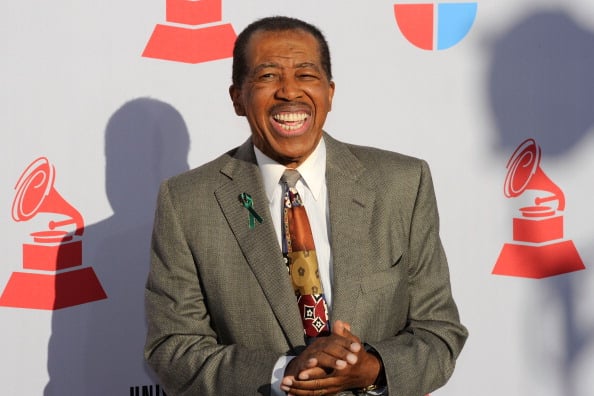What was Ben E. King's net worth?
Ben E. King was an American soul singer/songwriter who had a net worth of $20 million at the time of his death. It should be noted that a large portion of his net worth was the value of his songwriting and publishing catalog. Ben E. King rose to fame as the leader of the vocal group the Drifters in the late 1950s and early 60s. With the group, he recorded the US number-one hit single "Save the Last Dance for Me," as well as such notable songs as "There Goes My Baby" and "This Magic Moment." As a solo artist, King is best known for singing and co-composing the popular song "Stand by Me."
"Stand By Me" Royalties
Ben's most famous song "Stand by Me", which was co-written by Mike Stoller and Jerry Leiber, is one of the most-valuable songs ever produced. Between 1961 and and 2015 alone, the song generated more than $30 million on royalties for the trio, of which a reported 50% goes to King for being the performer in addition to co-writer.
Early Life
Ben E. King was born as Benjamin Earl Nelson on September 28, 1938 in rural Henderson, North Carolina. When he was nine, he moved with his family to the Harlem neighborhood of New York City, where his father had designs on opening a restaurant. There, King sang in church choirs, and in high school formed a doop-wop group called the Four B's.
The Drifters
In 1958, King joined the doo-wop group the Five Crowns. He and the other members of the group soon took over the R&B vocal group the Drifters, whose original members had all been recently fired by manager George Treadwell. King became the leader of the newly formed lineup, and went on to have a string of hits with the group on Atlantic Records. In 1959, he sang the lead and co-wrote "There Goes My Baby," the first Atlantic hit by the new Drifters. King subsequently sang lead on "Save the Last Dance for Me," "This Magic Moment," and "I Count the Tears." The first of those songs was the Drifters' only single to reach number one in the US. King left the group in May of 1960 to pursue a solo career. He would return to the Drifters in the UK in late 1982, singing with the group until its disbanding and reorganization in 1986.

Getty Images
Solo Career
Staying with Atlantic Records as a solo artist on the Atco label, King had his first solo hit with his ballad "Spanish Harlem," which peaked at number two on the Billboard Hot 100. King's next single would be the biggest of his career: "Stand by Me." Co-written with Jerry Leiber and Mike Stoller under the pseudonym Elmo Glick, the song went on to have a ubiquitous presence in popular culture, with over 400 recorded covers of the song being made over the years. "Stand by Me" experienced a resurgence in popularity in 1986 when it was used as the theme song in the film of the same name, and was reissued around the world.
King continued to record successful songs throughout the first half of the 60s, including "Don't Play That Song (You Lied)," "Amor," "I (Who Have Nothing)," and "Young Boy Blues." Despite falling out of favor somewhat amid the British Invasion of the latter half of the decade, King still had some solid R&B hits, including "Tears, Tears, Tears," "So Much Love," and "Til I Can't Take it Anymore." Later, in 1975, he mounted a comeback with the disco hit "Supernatural Thing," which reached number five on the Billboard Hot 100 and earned a Grammy Award nomination. Among his other notable contributions, King collaborated with the Average White Band on the album "Benny & Us," and with children's music artist Bobby Susser on the children's album "I Have Songs in My Pocket."
Later Life Activities
Later in his life, King was active in his charitable organization the Stand by Me Foundation, which works to make youth education more accessible. He also continued to tour both the United States and the United Kingdom, despite his declining health.
Personal Life and Death
In 1964, King married his wife Betty Nelson. Together, they had three children named Terris, Benjamin, and Angela. The couple remained together for more than 50 years, and resided in Teaneck, New Jersey.
After a brief illness, King died on April 30, 2015 at Hackensack University Medical Center in New Jersey. He was 76 years of age.
/2014/07/GettyImages-106773280.jpg)
/2019/07/jl.jpg)
/2017/01/Little-Anthony.jpg)
/2014/09/wp.jpg)
/2010/12/GettyImages-458668636.jpg)
/2023/04/Mike-Stoller.jpg)
/2009/09/Cristiano-Ronaldo.jpg)
/2020/02/Angelina-Jolie.png)
/2018/03/GettyImages-821622848.jpg)
/2017/02/GettyImages-528215436.jpg)
/2020/04/Megan-Fox.jpg)
/2009/11/George-Clooney.jpg)
/2019/11/GettyImages-1094653148.jpg)
/2009/09/Jennifer-Aniston.jpg)
/2019/04/rr.jpg)
:strip_exif()/2009/09/P-Diddy.jpg)
/2009/09/Brad-Pitt.jpg)
/2014/07/GettyImages-106773280.jpg)
/2019/07/jl.jpg)
/2023/04/Mike-Stoller.jpg)
/2022/04/ray-parker.jpg)
/2010/11/GettyImages-106746678.jpg)
/2010/09/GettyImages-3163270.jpg)
/2014/09/wp.jpg)
:strip_exif()/2015/09/GettyImages-476575299.jpg)
/2020/06/taylor.png)
/2019/10/denzel-washington-1.jpg)